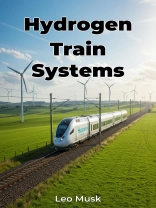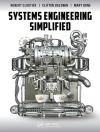Hydrogen Train Systems investigates the potential of hydrogen-powered trains as a sustainable alternative to conventional diesel locomotives, addressing railway decarbonization. It highlights hydrogen fuel cell technology and storage solutions for railway applications. The railway sector significantly contributes to greenhouse gas emissions; hydrogen propulsion offers a way to significantly reduce them. The book uniquely provides a systems-level approach, examining the entire hydrogen train ecosystem from fuel production to train operation.
The book begins by introducing hydrogen fuel cell technology fundamentals, then explores engineering challenges for train applications. Central chapters investigate hydrogen storage methods, including compressed gas and liquid hydrogen. A comprehensive section analyzes the environmental impact, considering well-to-wheel emissions. The book assesses the economic viability of hydrogen trains through case studies of existing deployments.
The book argues that hydrogen fuel cell technology, coupled with sustainable hydrogen production methods, offers a viable solution for decarbonizing railway networks. It presents a pragmatic alternative to electrification, which can be hindered by infrastructure limitations. The book progresses from fundamental principles to detailed analyses of environmental impact and economic viability, substantiated with scientific studies and real-world pilot project data.












